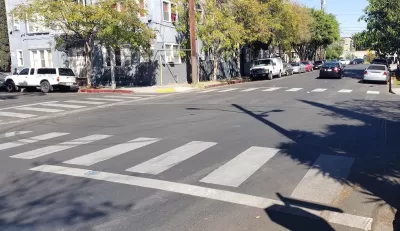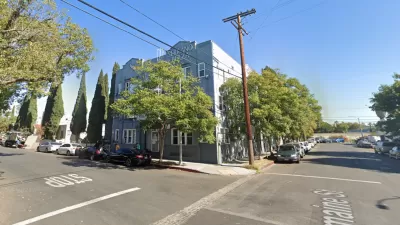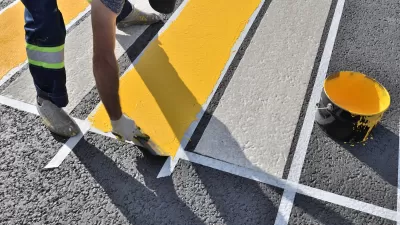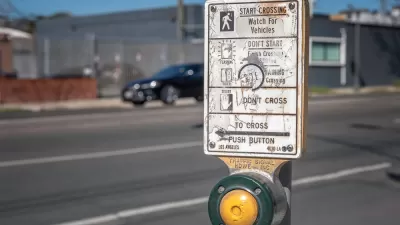Rather than take a hostile approach to DIY urbanism, some cities are using guerilla efforts as an opportunity to understand critical infrastructure gaps.

Around the country, groups like the Chattanooga Urbanist Society are taking on the failures of municipal agencies through ‘guerilla urbanism,’ reports Adina Solomon in Smart Cities Dive.
In Chattanooga, the Society has been installing homemade benches — 60 to date — at bus stops that lack seating — roughly 95 percent of Chattanooga bus stops.
Guerilla urbanists, Solomon explains, “develop low-cost, short-term interventions to serve community members and inspire long-term change. Whether they are installing bike lanes, planting gardens in vacant lots or painting crosswalks, guerrilla urbanists usually do not ask for government permission.”
“If something has happened in a city [that’s] strong enough to unite a group and make them publicly work towards a unified end together, something must be really wrong with that city,” said Jon Jon Wesolowski, founding member of the Chattanooga Urbanist Society. In Chattanooga, the city has been largely supportive of the Society’s efforts. In Los Angeles, the city has had a less friendly response to a group that paints crosswalks at dangerous intersections, citing concerns that the DIY crosswalks don’t meet state standards.
For Wesolowski and others, guerilla urbanism has the power to make people more aware of their public realm and the speed with which improvements can be deployed. Meanwhile, “Governments can take guerrilla urbanism activity as an opportunity to engage the local community and get residents involved in fixing issues.”
FULL STORY: Guerrilla urbanists are ‘doing it our damn selves’

Maui's Vacation Rental Debate Turns Ugly
Verbal attacks, misinformation campaigns and fistfights plague a high-stakes debate to convert thousands of vacation rentals into long-term housing.

Planetizen Federal Action Tracker
A weekly monitor of how Trump’s orders and actions are impacting planners and planning in America.

Chicago’s Ghost Rails
Just beneath the surface of the modern city lie the remnants of its expansive early 20th-century streetcar system.

Bend, Oregon Zoning Reforms Prioritize Small-Scale Housing
The city altered its zoning code to allow multi-family housing and eliminated parking mandates citywide.

Amtrak Cutting Jobs, Funding to High-Speed Rail
The agency plans to cut 10 percent of its workforce and has confirmed it will not fund new high-speed rail projects.

LA Denies Basic Services to Unhoused Residents
The city has repeatedly failed to respond to requests for trash pickup at encampment sites, and eliminated a program that provided mobile showers and toilets.
Urban Design for Planners 1: Software Tools
This six-course series explores essential urban design concepts using open source software and equips planners with the tools they need to participate fully in the urban design process.
Planning for Universal Design
Learn the tools for implementing Universal Design in planning regulations.
planning NEXT
Appalachian Highlands Housing Partners
Mpact (founded as Rail~Volution)
City of Camden Redevelopment Agency
City of Astoria
City of Portland
City of Laramie





























